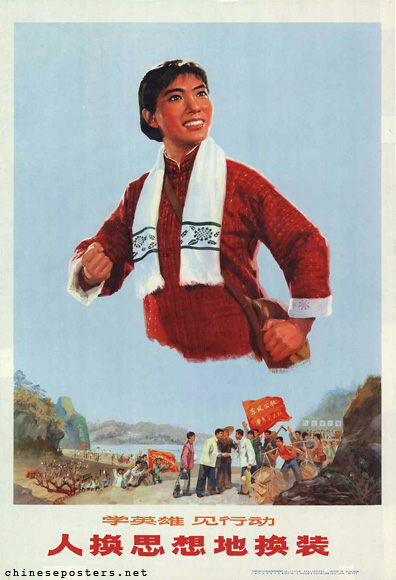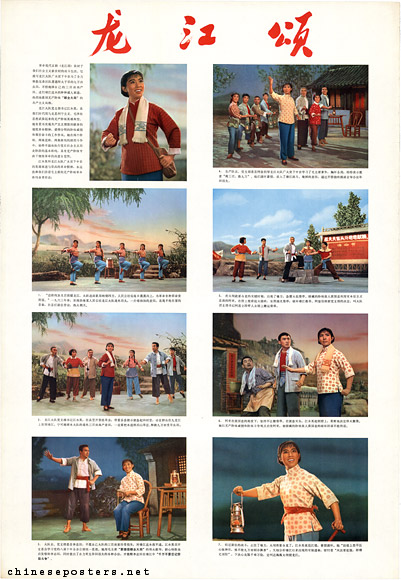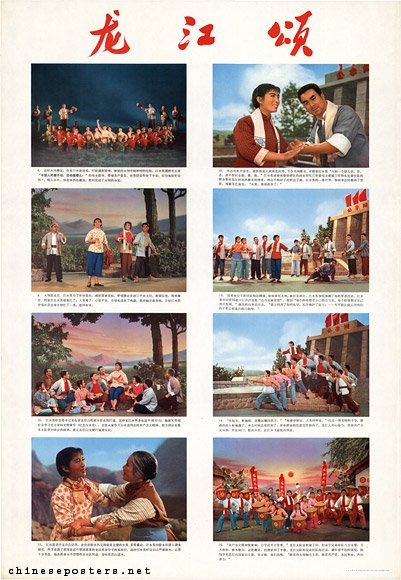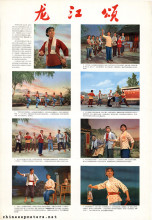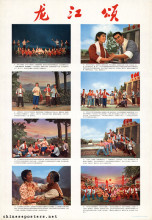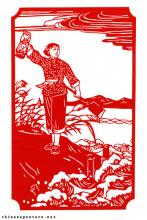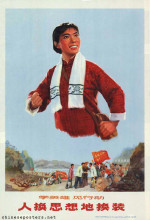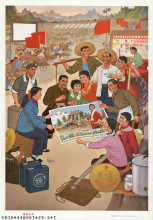People change thoughts, the earth changes looks, 1974
Longjiang Song (龙江颂, Ode to the Dragon River) started out as a spoken drama, but was later changed to Beijing Opera on a socialist theme. It was part of the model works that were produced after 1969. The score gives prominence to traditional instruments. Ode to the Dragon River is typically set in post-1949 China. It focusses on ferreting out "class enemies", i.e. anybody who did not belong the hallowed ranks of the gongnongbing 工农兵, the workers-peasants-soldiers.
Ode to Longjiang-Revolutionary model opera, 1973
Ode to Longjiang-Revolutionary model opera, 1973
This may be the reason that plays such as this one have not seen a renewed popularity in the 1990s and after. Most of the people still feel hurt by their tone and contents.
Kwok-sing Li (editor) & Mary Lok (translator), A Glossary of Political Terms of the People’s Republic of China (Hong Kong: The Chinese University Press, 1995)
Lu Xing, Rethoric of the Chinese Cultural Revolution - The Impact on Chinese Thought, Culture and Communication (Columbia: University of South Carolina Press, 2004)
Sheila Melvin & Jindong Cai, "Nostalgia for the Fruits of Chaos in Chinese Model Operas", The New York Times on the Web, 29 October 2000
Barbara Mittler, A Continuous Revolution -- Making Sense of Cultural Revolution Culture (Cambridge: Harvard University Press, 2013)
Rosemary Roberts, "From Zheng Qiang to Jiang Shuiying: The Feminization of a Revolutionary Hero in Maoist Theatre’s Song of the Dragon River", Asian Theatre Journal 23:2 (2006), 265-291
Rosemary A. Roberts, Maoist Model Theatre -- The Semiotics of Gender and Sexuality in the Chinese Cultural Revolution (1966-1976) (Leiden: Brill, 2010)
Roxane Witke, Comrade Chiang Ch’ing (London: Weidenfeld and Nicolson, 1977)
